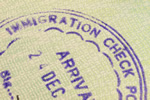Upsides and downsides of Shanghai for ambitious expats

Upsides and downsides of Shanghai for ambitious expats
Most expats arriving from the West are either relocating for their present employer or taking a chance on furthering their careers in this most exotic of destinations. For Western businesses with global dreams, China is now the jumping-off point for expansion into Asia as a whole, needing long-term commitment resulting in expat families coming along for the ride. Surprisingly, only a few new arrivals have any experience of working in Chinese companies alongside Chinese employees.
For many expat professionals, it’s the first international reassignment or relocation, with Shanghai now a popular place for those looking to develop their portfolios. It’s a city with many faces, as different from other Chinese mega-conurbations as it could be, thus giving a unique experience to all new arrivals, whether working or just visiting. The first shock is the population of over 24 million, all of whom seem to be on the streets at the same time, confirming newbies’ first impression of dynamism and modernity.
Shanghai is China’s most crucial industrial hub as well as an amazing mix of tradition and modernity, giving the impression that the past and the present are coexisting in its varied districts and giving a cosmopolitan feel to the whole. Multicultural diversity goes hand in hand with unique experiences and expat communities are well established as well as being supported by local government officialdom.
Rated as one of Asia’s safest environments, Shanghai offers a low crime rate, even although expats are advised to stay away from poorly lit areas at night. Local police in expat areas are committed to safeguarding expatriate districts, but zipping up bags and keeping wallets out of sight is still recommended.
Foodies will love the culinary scene as Chinese cuisine in general is fast to prepare, delicious and amazingly cheap. For unforgettable dining, a visit to the food stalls along Xiangyang Road is a must and, for those needing culinary diversity every so often, there are Japanese, Italian, Lebanese, French and other diverse dining options.
If you’re concerned about healthcare standards, Shanghai’s private hospitals are everything they should be as long as employers provide adequate private cover, as treatment costs are amongst the world’s most expensive. Whilst on the subject of health, Shanghai’s tap water is best avoided and fruit and veggies should be washed with purified water. When you’re renting accommodation, one question should be the provision of a water filtering system, and those allergic to penetrating winter chills should check the heating system.
Related Stories:
- Expats find peace in the covid-19 refuge of Dahab town - July 20, 2020
- Expats in Malaysia still banned from overseas travel - July 17, 2020
- Asian tiger economies reach out to expats in Hong Kong - July 16, 2020
- China hits its expats with 45 per cent tax on overseas earnings - July 15, 2020
- Foreigners and expats condemn Thailand attractions dual pricing - July 14, 2020
- Expats in Denmark get career enhancement and great work/life balance - July 13, 2020
Latest News:
- Tips on a trouble-free relocation as an expat overseas - July 20, 2020
- Expats find peace in the covid-19 refuge of Dahab town - July 20, 2020
- Is Kuwaitization the unintended result of the oil price crash? - July 20, 2020
- Expats unhappy abut changes to Korean points-based visa system - July 17, 2020
- Chiang Mai and Bangkok no longer bargain locations for expats - July 17, 2020
- Expats in Malaysia still banned from overseas travel - July 17, 2020
- Vietnam welcomes expats to its safe, affordable lifestyle - July 16, 2020
- Asian tiger economies reach out to expats in Hong Kong - July 16, 2020
- HSBC Asia to cut back on internal expat relocations - July 16, 2020
- Tips on integrating for newly-arrived expats - July 15, 2020


